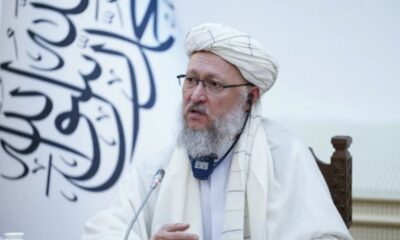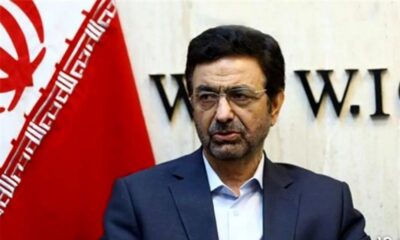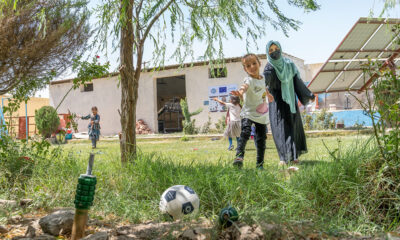Business
Experts say Europe faces ‘unprecedented risk’ of a gas shortage

Europe faces “unprecedented risks” to its natural gas supplies this winter after Russia cut off most pipeline shipments, the International Energy Agency said Monday, warning that European nations could wind up competing with Asia for already scarce and expensive liquid gas that comes by ship.
The Paris-based IEA said in its quarterly gas report that the European Union’s 27 countries would need to reduce natural gas use by 13% over the winter in case of a complete Russian cutoff amid the war in Ukraine. Much of that cutback would have to come from consumer behavior such as turning down thermostats by 1 degree and adjusting boiler temperatures as well as industrial and utility conservation, the group said, AP reported.
The EU on Friday agreed to mandate a reduction in electricity consumption by at least 5% during peak price hours.
Just a trickle of Russian gas is still arriving in pipelines through Ukraine to Slovakia and across the Black Sea through Turkey to Bulgaria. Two other routes, under the Baltic Sea to Germany and through Belarus and Poland, have shut down.
Another hazard highlighted by the study was a late winter cold snap, which would be particularly challenging because underground gas reserves flow more slowly at the end of the season due to less gas and lower pressure in the storage caverns. The EU has already filled storage to 88%, ahead of its goal of 80% before winter. The IEA assumed 90% would be needed in its Russian gas cutoff scenario.
Businesses in Europe have already cut back natural gas use, sometimes simply by abandoning energy-intensive activity such as making steel and fertilizer, while smaller businesses like bakeries are feeling a severe crimp in their costs.
High prices for natural gas, which is used for heating homes, generating electricity and a host of industrial processes, are fueling record consumer inflation of 10% in the 19 EU nations that use the shared euro currency. The high energy prices are sapping so much consumer purchasing power that economists predict a recession at the end of this year and the beginning of next.
European governments and utilities have made up much of the Russian shortfall by purchasing expensive supplies of liquefied natural gas, or LNG, that comes by ship from countries such as the U.S. and Qatar and by obtaining increased pipeline supplies from Norway and Azerbaijan.
The goal is to prevent storage levels from falling so far that governments must ration gas to businesses. Gas storage must remain above 33% for a secure winter, according to the IEA, while levels below that risk shortages if there’s a late cold snap.
Lower levels also would make it harder for Europe to refill storage next summer, while higher reserves from conservation would help lower extremely high energy prices.
French Prime Minister Élisabeth Borne on Monday played down concerns of gas shortages, saying her country has diversified its supplies and stocked up “to the maximum.”
“We are ready to face this winter,” she told France’s lower house of parliament. Reiterating her government’s drive for energy saving, Borne added there are no risks of energy cuts in coming months “if everyone plays their part.”
European leaders say the cutback in Russian gas is energy blackmail aimed at pressuring governments over their support for Ukraine and sanctions against Moscow.
Since Russia halted gas flows this month through the Nord Stream 1 pipeline running under the Baltic Sea to Germany, it and the parallel Nord Stream 2 — built but never operated after Germany refused to certify it — were damaged in underwater explosions that European governments say are sabotage.
Demand for liquefied gas has driven up prices and tightened supply to the extent that poorer countries in Asia cannot afford it. Bangladesh is experiencing widespread power blackouts, while Pakistan faces rolling blackouts and has introduced reduced working hours so shops and factories can save electricity.
“Inter-regional competition in LNG procurement may create further tensions, as additional European needs would put more pressure on other buyers, especially in Asia, and conversely cold spells in Northeast Asia could limit Europe’s access to LNG,” the agency said.
The gas crisis in Europe has also deprived Asian countries of the limited number of floating regasification terminals, which were expected to play a major role in LNG imports in Southeast Asia. Europe has secured 12 of the vessels and plans another nine.
Business
China’s first railway consignment arrives in Afghanistan via Iran
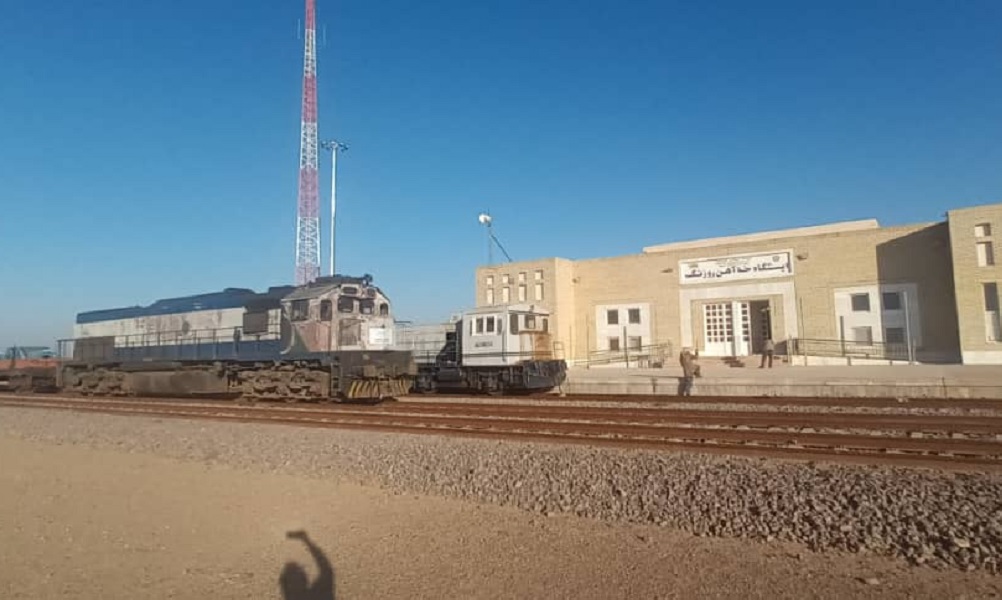
China's first railway transit consignment to Afghanistan via Iran, carrying 1,000 tons of iron coil, arrived at Roznak station in Herat province, the Ministry of Public Works said on Friday.
The consignment, which started its journey from China, arrived in Afghanistan via Iran's railway network, Public Works Ministry spokesman Mohammad Ashraf Haqshenas said in a statement.
"The transportation of cargo through this route is an important step in the development of Afghanistan's transit links and connection to open waters and represents progress in the field of regional transport and transit," he said.
Haqshenas added that the completion of the Khaf-Herat railway would offer new potentials for Afghanistan's economy and create a good platform for expanding trade and transit in the region.
Business
Russia is using bitcoin in foreign trade, finance minister says
This year, Russia permitted the use of cryptocurrencies in foreign trade and has taken steps to make it legal to mine cryptocurrencies, including bitcoin.

Russian companies have begun using bitcoin and other digital currencies in international payments following legislative changes that allowed such use in order to counter Western sanctions, Finance Minister Anton Siluanov said on Wednesday.
Sanctions have complicated Russia's trade with its major partners such as China or Turkey, as local banks are extremely cautious with Russia-related transactions to avoid scrutiny from Western regulators, Reuters reported.
This year, Russia permitted the use of cryptocurrencies in foreign trade and has taken steps to make it legal to mine cryptocurrencies, including bitcoin. Russia is one of the global leaders in bitcoin mining.
"As part of the experimental regime, it is possible to use bitcoins, which we had mined here in Russia (in foreign trade transactions)," Siluanov told Russia 24 television channel.
"Such transactions are already occurring. We believe they should be expanded and developed further. I am confident this will happen next year," he said, adding that international payments in digital currencies represent the future.
Earlier this month, President Vladimir Putin said that the current U.S. administration was undermining the role of the U.S dollar as the reserve currency by using it for political purposes, forcing many countries to turn to alternative assets, Reuters reported.
He singled out bitcoin as an example of such assets, saying that no-one in the world could regulate bitcoin. Putin's remarks indicated that the Russian leader backs the extensive use of cryptocurrencies.
Business
Shoemaking industry in Takhar province facing stagnation
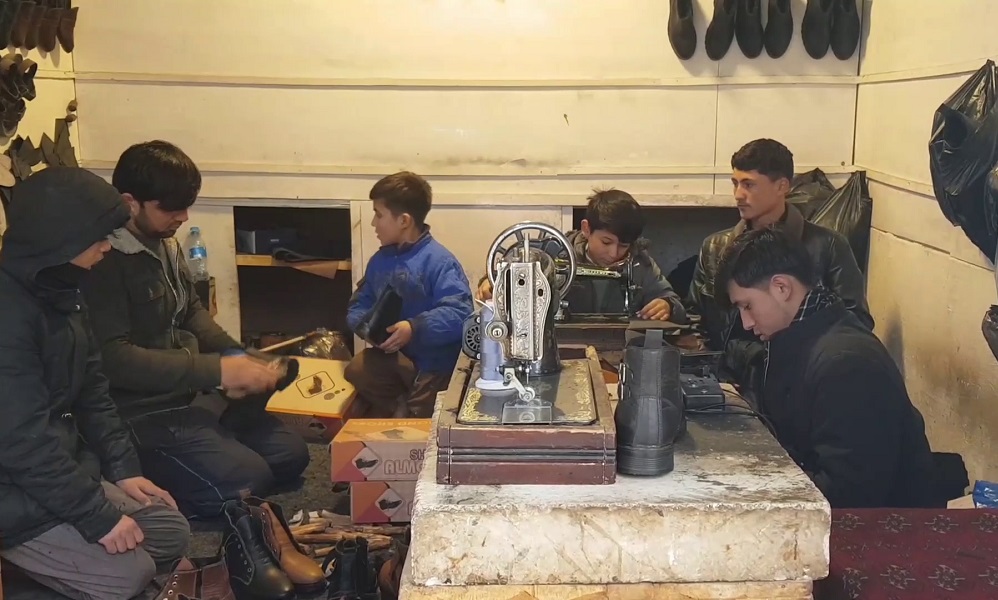
A number of shoemakers in northern Takhar province say that while their handmade shoes are of better quality than imported shoes, but still sales are down.
According to them, there were more than 20 shoe-making shops in the past, but now some have been closed due to the decline in sales.
The shoemakers make most of their shoes from leather. A number of industrialists say that this industry is now facing stagnation.
Abdul Raqib, a shoemaking factor owner, said: “The government should support us. Currently, we import soles. It can be made with good quality in Afghanistan, and we could even compete against Turkish shoes.”
Meraj, another shoemaking factory owner, said: “Shoe sales were higher in the republic era. There were military shoes. Sales have declined now, but we still thank Allah.”
Shoemakers make these shoes with basic tools and by hand, with 5 to 8 people working in each shop.
Javed, a shoemaker, said: “Our sales are not so good. We can make any type of shoe or slipper. We want the government to support us.”
A number of Takhar residents say that domestically produced shoes are of high quality and with lower price compared to imported shoes, so people prefer domestic products to foreign products.
Mir Ata, a resident of Takhar, said: “We are very happy about domestic shoes. People should buy it. They are of good quality.”
However, the officials of Takhar Industry and Commerce Department say that they are committed to support the industrialists.
Abdul Rahman Ghaznawi, provincial director of industry and commerce, said: “People prefer domestic shoes and slippers. Takhar’s products are sold in Kunduz, Baghlan and Badakhshan as well.”
Meanwhile, industrialists say that if the government supports them, they will be able to make the best products and can be more competitive.
-
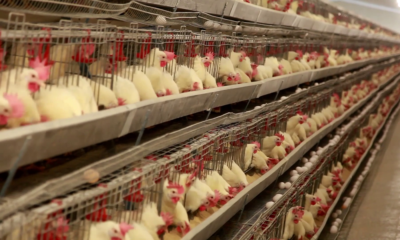
 Latest News3 days ago
Latest News3 days agoMinistry: $1 billion invested in Afghanistan’s poultry production sector
-
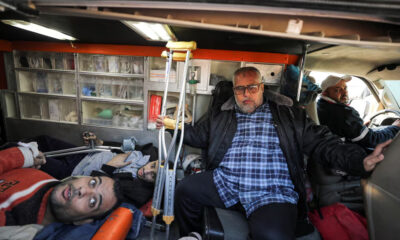
 Regional5 days ago
Regional5 days agoU.N. body accuses Israel of destroying Gaza healthcare
-
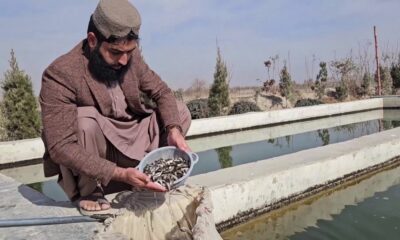
 Latest News3 days ago
Latest News3 days agoDeclining water levels affect 50 percent of fish farms in Kandahar
-
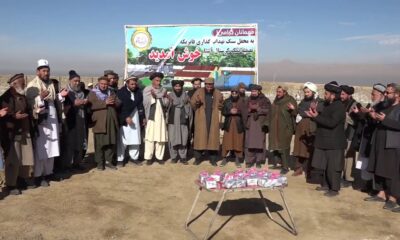
 Latest News3 days ago
Latest News3 days agoSalt refinery plant to be built in Takhar province
-
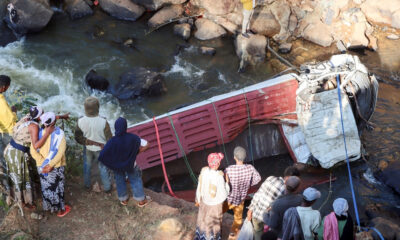
 Latest News5 days ago
Latest News5 days agoAt least 71 killed in Ethiopia road accident
-

 World4 days ago
World4 days agoUS vet formerly deployed in Afghanistan rams truck into New Orleans crowd, killing 15
-

 Sport3 days ago
Sport3 days agoAfghanistan set for second test against Zimbabwe in Bulawayo
-
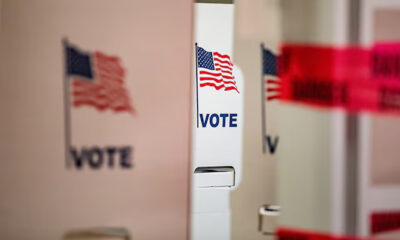
 Regional4 days ago
Regional4 days agoUS imposes sanctions on entities in Iran, Russia over election interference




